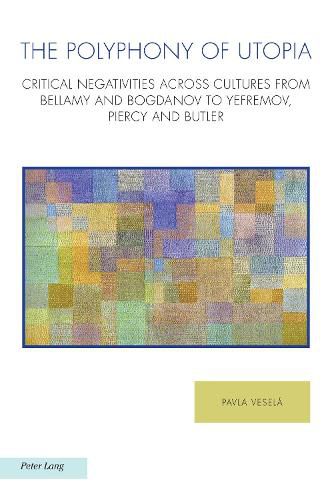Readings Newsletter
Become a Readings Member to make your shopping experience even easier.
Sign in or sign up for free!
You’re not far away from qualifying for FREE standard shipping within Australia
You’ve qualified for FREE standard shipping within Australia
The cart is loading…






This title is printed to order. This book may have been self-published. If so, we cannot guarantee the quality of the content. In the main most books will have gone through the editing process however some may not. We therefore suggest that you be aware of this before ordering this book. If in doubt check either the author or publisher’s details as we are unable to accept any returns unless they are faulty. Please contact us if you have any questions.
<>
(Michael Hardt, Professor of Literature, Duke University)
<>
(Thomas Lahusen, Professor Emeritus, University of Toronto)
Utopias - literary visions of better, more just and happier communities - have been misconceived as <> on the one hand and <> on the other. Building on the notion of <> and elaborating on interpretations of literary works as contradictory and incomplete, the book analyses selected utopian and dystopian novels by five writers: Edward Bellamy, Alexander Bogdanov, Ivan Yefremov, Marge Piercy and Octavia E. Butler. It argues that departing from the conventions of realism, utopias advance credible visions of more perfect ways of living and being which are nevertheless destabilized through gothic and poetic generic elements. Unresolved issues are further explored in (utopian as well as dystopian) sequels and prequels. The novels analysed in detail include Bellamy's Looking Backward 2000-1887 (1888) and Equality (1897), Bogdanov's Red Star: A Utopia (1908) and Engineer Menni: A Novel of Fantasy (1913), Yefremov's Andromeda: A Space-Age Tale (1957) and The Hour of the Bull (1970), Piercy's Woman on the Edge of Time (1976) and He, She and It (1991), and Butler's Parable of the Sower (1993) and Parable of the Talents (1998).
$9.00 standard shipping within Australia
FREE standard shipping within Australia for orders over $100.00
Express & International shipping calculated at checkout
This title is printed to order. This book may have been self-published. If so, we cannot guarantee the quality of the content. In the main most books will have gone through the editing process however some may not. We therefore suggest that you be aware of this before ordering this book. If in doubt check either the author or publisher’s details as we are unable to accept any returns unless they are faulty. Please contact us if you have any questions.
<>
(Michael Hardt, Professor of Literature, Duke University)
<>
(Thomas Lahusen, Professor Emeritus, University of Toronto)
Utopias - literary visions of better, more just and happier communities - have been misconceived as <> on the one hand and <> on the other. Building on the notion of <> and elaborating on interpretations of literary works as contradictory and incomplete, the book analyses selected utopian and dystopian novels by five writers: Edward Bellamy, Alexander Bogdanov, Ivan Yefremov, Marge Piercy and Octavia E. Butler. It argues that departing from the conventions of realism, utopias advance credible visions of more perfect ways of living and being which are nevertheless destabilized through gothic and poetic generic elements. Unresolved issues are further explored in (utopian as well as dystopian) sequels and prequels. The novels analysed in detail include Bellamy's Looking Backward 2000-1887 (1888) and Equality (1897), Bogdanov's Red Star: A Utopia (1908) and Engineer Menni: A Novel of Fantasy (1913), Yefremov's Andromeda: A Space-Age Tale (1957) and The Hour of the Bull (1970), Piercy's Woman on the Edge of Time (1976) and He, She and It (1991), and Butler's Parable of the Sower (1993) and Parable of the Talents (1998).